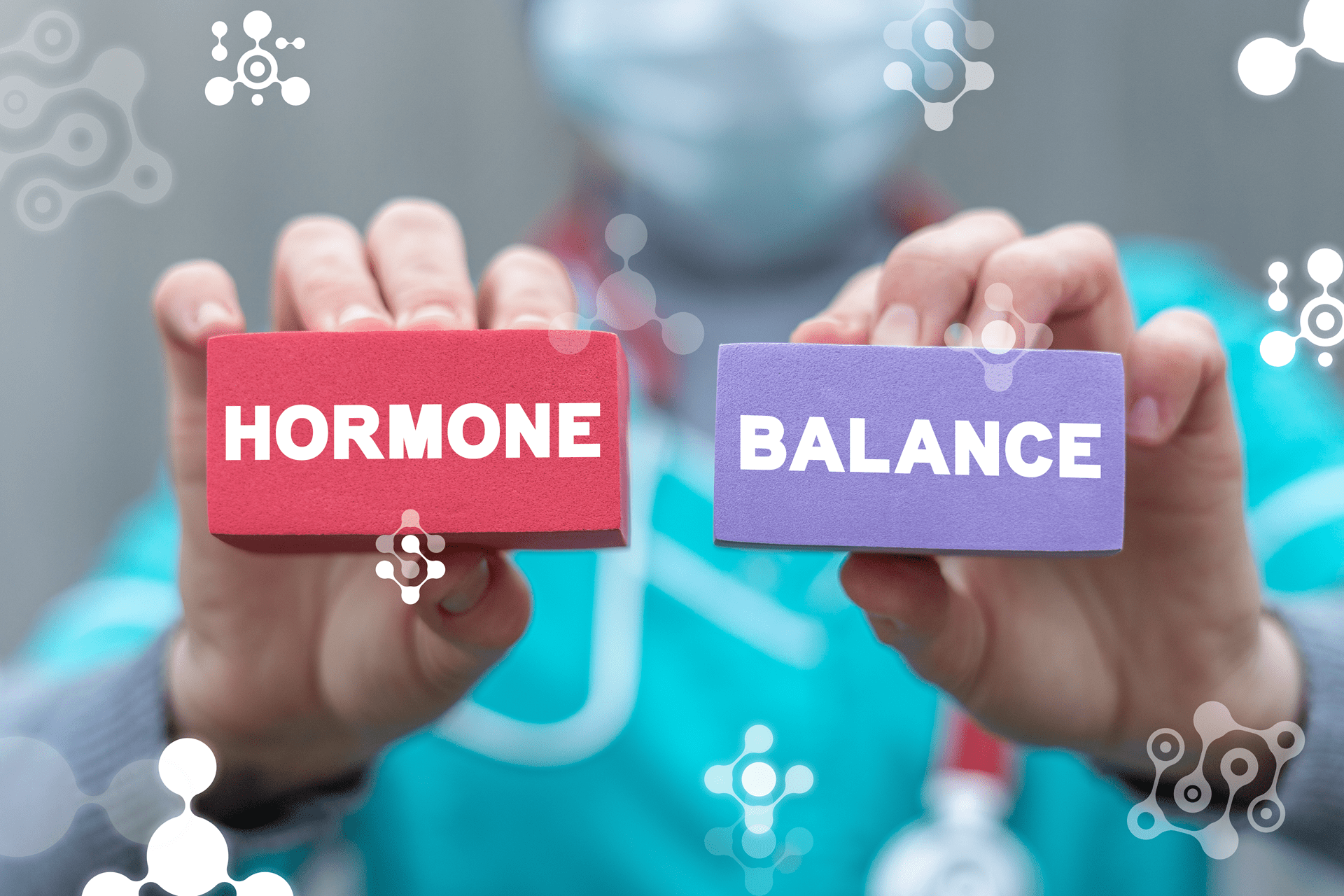Aging is a natural process, but the way we feel as we age is largely influenced by hormone balance. Ever wonder why fatigue, weight gain, brain fog, and loss of muscle tone seem to creep in over time? It’s not just the passage of years—it’s your hormones at work.
Hormones act as the body’s internal messengers, regulating metabolism, energy production, muscle strength, and even mental sharpness. As we age, these hormones decline, leading to noticeable changes in how we feel and function. Understanding the role of testosterone, estrogen, thyroid hormones, and cortisol in the aging process is the key to maintaining vitality, strength, and clarity at every stage of life.
How Do Hormones Change as We Age?
Our bodies are in constant communication with our hormones, but as early as our 30s and 40s, levels of key hormones start to decline. Here’s how some of the most important hormones change over time:
1. Testosterone: The Power & Vitality Hormone
✅ What it does: Testosterone is essential for muscle growth, energy levels, libido, and cognitive function. Though commonly associated with men, women also produce testosterone—just in smaller amounts.
🔻 What happens with age?
- In men, testosterone levels decline 1% per year after age 30.
- Women experience a significant drop after menopause, which can contribute to low energy, poor focus, and muscle loss.
- Low testosterone leads to fatigue, increased body fat, reduced muscle tone, and low motivation.
2. Estrogen: The Youth & Balance Hormone
✅ What it does: Estrogen plays a crucial role in skin elasticity, brain function, metabolism, and bone health. It also helps regulate mood and energy.
🔻 What happens with age?
- Estrogen levels fluctuate during perimenopause (mid-30s to early 50s) and plummet after menopause.
- Declining estrogen contributes to fatigue, weight gain (especially around the abdomen), hot flashes, mood swings, and memory fog.
- Loss of estrogen affects collagen production, leading to sagging skin and joint discomfort.
3. Thyroid Hormones: The Metabolism Regulators
✅ What they do: The thyroid gland produces hormones that control metabolism, body temperature, and energy production.
🔻 What happens with age?
-
Hypothyroidism (low thyroid function) becomes more common with age, leading to:
- Slower metabolism & weight gain
- Fatigue & sluggishness
- Cold intolerance & dry skin
- Brain fog & depression
- Women are at higher risk for thyroid dysfunction, especially post-menopause.
4. Cortisol: The Stress & Inflammation Hormone
✅ What it does: Cortisol helps regulate stress response, inflammation, blood sugar, and sleep cycles.
🔻 What happens with age?
- Chronic stress leads to elevated cortisol levels, which contribute to:
- Poor sleep & chronic fatigue
- Increased belly fat
- Weakened immune function
- Mood swings & anxiety
- Over time, adrenal fatigue can occur, where cortisol levels become too low, leaving people feeling exhausted and burned out.
How Hormonal Shifts Impact Energy, Strength & Mental Clarity
Aging isn’t just about getting older—it’s about how your body functions at a cellular level. Hormonal imbalances accelerate common aging symptoms, making people feel older than they should.
1. Low Energy & Chronic Fatigue
❌ Problem: Declining testosterone, estrogen, and thyroid hormones slow down cellular energy production, leading to persistent fatigue and lack of motivation.
✅ Solution: Optimizing hormone levels can restore natural energy production, improve sleep, and enhance mental alertness.
2. Increased Fat & Muscle Loss
❌ Problem: Low testosterone, thyroid imbalances, and estrogen loss contribute to muscle wasting, stubborn belly fat, and a slower metabolism.
✅ Solution: Testosterone replacement therapy (TRT) and proper thyroid support boost muscle mass and metabolism, helping maintain a lean, strong body.
3. Brain Fog & Memory Decline
❌ Problem: Estrogen, testosterone, and thyroid hormones support brain function. Low levels are linked to poor focus, forgetfulness, and slow cognitive processing.
✅ Solution: Balancing hormones improves memory retention, sharpness, and mood stability.
4. Poor Sleep & Mood Swings
❌ Problem: High cortisol disrupts the body’s natural sleep cycle, while low estrogen and progesterone contribute to insomnia, anxiety, and irritability.
✅ Solution: Optimizing hormones and regulating stress levels leads to deeper, more restorative sleep and emotional balance.
How to Maintain Hormonal Balance & Age Gracefully
Aging doesn’t have to mean low energy, weight gain, or brain fog. By identifying and treating hormonal imbalances, you can stay strong, energized, and mentally sharp well into your later years.
1. Get Comprehensive Hormone Testing
The first step is testing your hormone levels. A simple blood test can identify imbalances in testosterone, estrogen, thyroid hormones, cortisol, and more.
2. Consider Bioidentical Hormone Optimization
For those experiencing significant hormone decline, BioTe® hormone pellet therapy offers a personalized, long-lasting solution to rebalance hormone levels safely and effectively.
3. Support Your Hormones with Lifestyle & Nutrition
- Prioritize Strength Training 🏋️♂️ – Boosts testosterone & metabolism
- Reduce Sugar & Processed Foods ❌ – Stabilizes insulin & cortisol
- Get Quality Sleep 😴 – Supports growth hormone & cellular repair
- Manage Stress 🧘 – Lowers cortisol & prevents burnout
- Use Medical-Grade Supplements 💊 – Supports thyroid, adrenal, and hormonal function
Take Control of Your Aging Journey
Aging doesn’t have to mean slowing down. By understanding and optimizing your hormones, you can feel stronger, more energized, and mentally sharper at every stage of life.
At Wise Aesthetics, we specialize in comprehensive hormone testing and BioTe® hormone optimization, helping you achieve balanced hormones and lasting vitality.
Schedule a consultation today to learn how hormone balancing can transform your energy, metabolism, and overall well-being.
📞 Call us at (317) 569-6448 or book online to get started!



Share:
Hormone Optimization: Restore Balance, Vitality, and Longevity with BioTe®